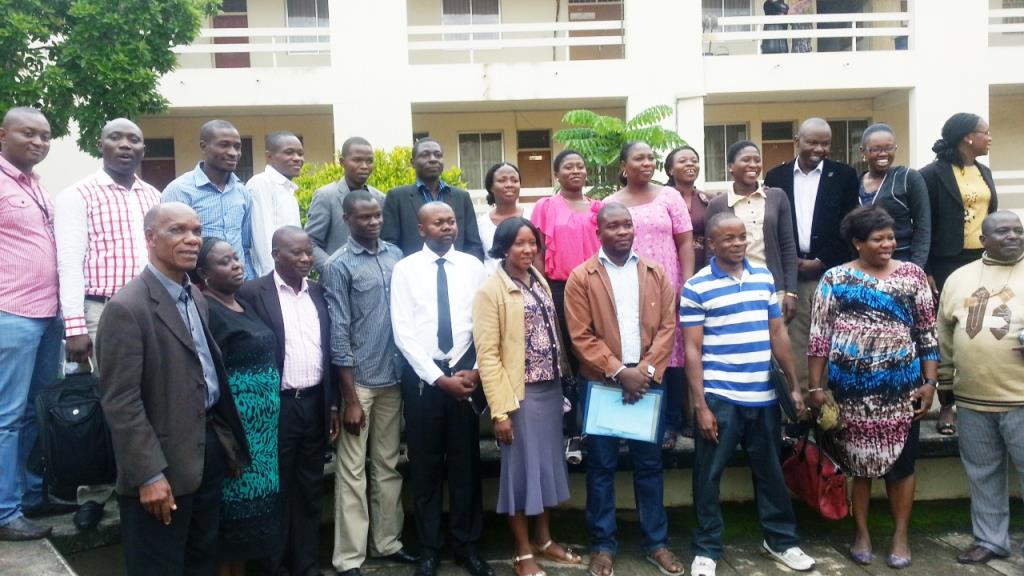The Africa Centre of Excellence in Phytomedicine Research and Development (ACEPRD) focuses on pointing Africa and the whole of humanity to the natural things that make up medicine for the healing of the human body. It is committed to leading in the area of Phytomedicine Research and Training and is working, assiduously, to attract grants to internationalise the Centre by attracting international students and faculty to the University.
Phytomedicine, not the orthodox medicine, the Centre says, because traditional things are original. This, it argued, is why trado-medicine practitioners (TMPs) are all over Africa and beyond and this is why ACEPRD is synonymous with originality. ACEPRD is taking a lead in harnessing Africa’s biodiversity to solve human health problems. Its mandate is to provide an alternative source of medicine for the cure of Africa’s health challenges, train manpower to achieve this now and in the future as well as provide knowledge through skillful research and publication, to show emerging issues in the field of Phytomedicine.
In the past two years, a set of TMPs and academics from across Nigeria, Togo, Benin Republic, Ghana, Cameroun and Burkina Faso have been engaged and discovered, who have developed drugs and drinks in the best of their states, from natural sources. These people are eager to sell their products, but face the challenges of how to standardise these products.
ACEPRD has developed some basic courses and simplified the curriculum to train trado-medicine practitioners across the West and Central African sub-regions and recorded some successes.
In the first year of the project, the Centre admitted 103 students into its five Masters and PhD programmes and has, so far, graduated nine regional students from Togo, DR Congo and Liberia. The Centre graduated students, through partnerships with the Université des Montagnes, Cameroun and facilitated six-month internships for the students in pharmaceutical companies in Nigeria. ACEPRD also welcomed a scholar from the same University from January to March, 2016, for research purposes. The student has since published three journal articles.
The Centre has run a number of short courses in Bioinformatics and Genomics, where no fewer than 200 short-term students have been trained. More than 200 students are currently enrolled for M.Sc. and PhD programmes in different areas of Phytomedicine, with supervision cutting across the Centre, partner institutions and inter-disciplinary departments to enrich the programmes. For the 2016 admissions, more than 150 national and 13 regional students were enrolled. Thirty-seven of the students of the the 2015/2016 academic session have completed their internships, while two faculty have also undergone internships.
Milestones recorded by ACEPRD include the acquisition of the ACE office, donated by the Vice-Chancellor of the University of Jos, Professor Sebastian Maimakoe. It consists of lecture halls, seminar/conference rooms, offices and four laboratories. The Centre has also received donations of two Bioreactors and NMR machines from one of its partner-universities in the United States, facilitated by Professor Ramesh Pandey of the Ayurvedic University, New Jersey. Among others, the award-winning Centre clinched the NOTAP/RMRDC Star Prize, during its exposition, in Abuja, in February, 2016.
As part of its long-term goals, ACEPRD hopes to train not less than 1000 students in postgraduate and short courses; provide state-of-the-art equipment for its laboratories, publish widely on Phytomedicine, in both national and international journals as well as have all its programmes accredited. This, it hopes to achieve before the expiration of the World Bank grant. To ensure the sustainability of the ACE project, beyond the World Bank support, ACEPRD was set up as an academic unit of the University of Jos.

